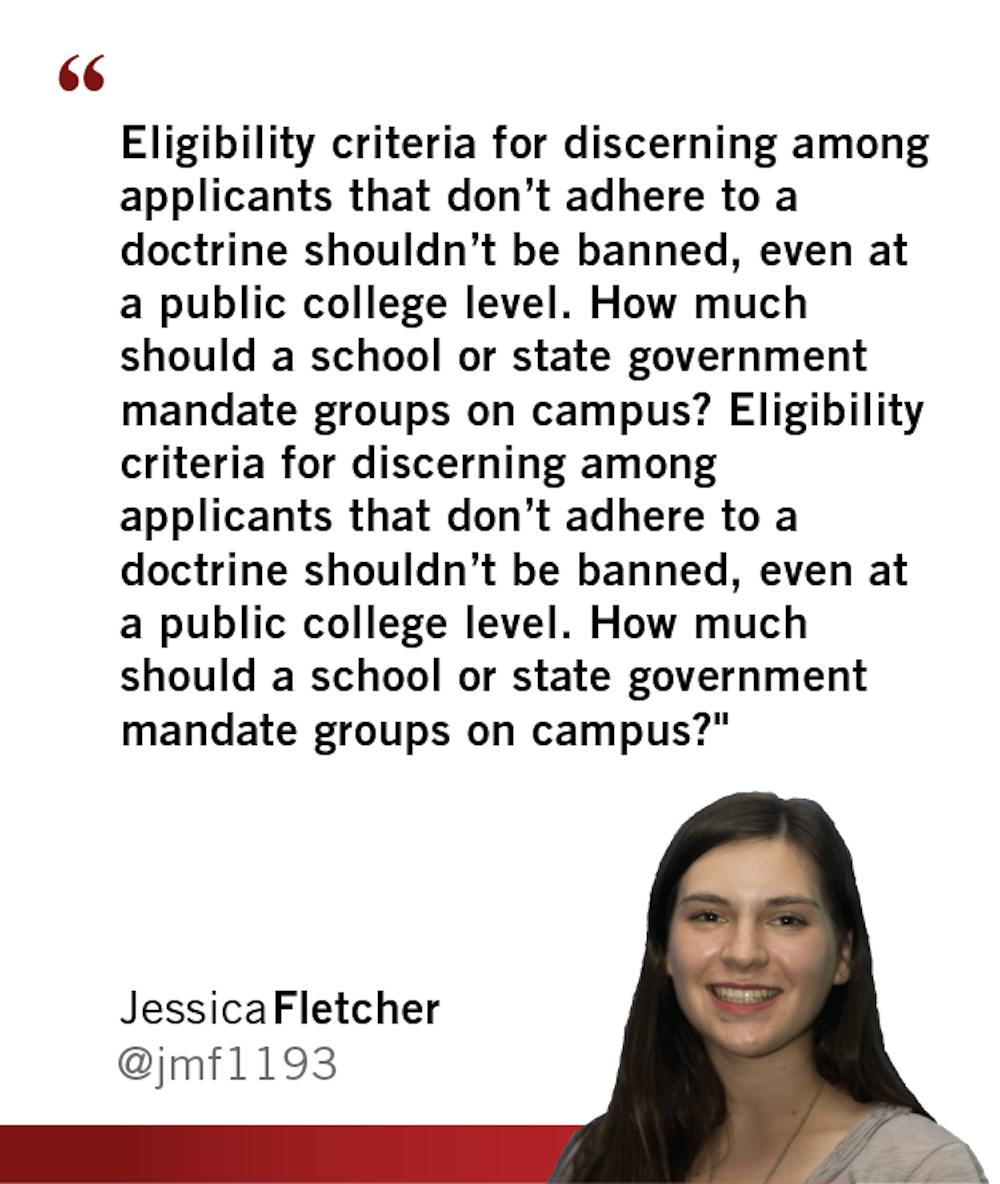Earlier this month, a Huffington Post article described how California State University campuses ‘de-recognized’ a student Christian group, InterVarsity. The school denied the group, which has been established in the U.S. since 1947, because it requires its leaders to adhere to Christian doctrinal beliefs, which closes its leadership roles to non-Christians and homosexuals.
The school argued that this conflicted with the state-mandated nondiscrimination policy requiring membership and leadership in official student groups to be open to all.
This state mandate is derived from a 2010 Supreme Court case, Christian Legal Society v. Martinez, which ruled that colleges could "refuse to recognize religious student organizations with an 'all-comers' policy if its religious beliefs are effectively discriminatory."
It seems that in an age of political correctness, adhering to religious beliefs can be considered “effectively discriminatory.” Rather, having and noting differences reaps a branding of the distorted D-word: discrimination.
Within this case, distinguishing between members and leaders on the basis of doctrinal beliefs hardly merits the umbrella of taboo words that discrimination covers. Ohio State University opted to adjust its anti-discrimination policies to account for groups with sincerely-held religious beliefs to adopt eligibility criteria for student officers.
While Christian Legal Society v. Martinez ruled that public colleges could refuse to recognize religious student organizations in a 5-4 decision, the dissent makes the point that this could sacrifice core First Amendment components for the sake of political correctness.
Have we gotten too nervous about being fair that we have morphed into an institutionalized mass that is unfair to groups that differ from ours? There is emphasis on diversity — unless your beliefs differ on morality. A double standard for diversity and tolerance strongly holds in our public colleges. The attempt to prevent blind, judgmental doctrine is noteworthy, but being tolerant does just that — promotes tolerance. You tolerate your annoying little brother. You respect others.
The issue seems to lie in the words. The word "discriminate" derives from the word "discern," meaning to notice or understand that one thing is different from another thing. Yet, it has warped into a monstrous secondary definition with an emotional surge of disgust. No longer can the word mean anything besides unfairly treating different groups.
Eligibility criteria for discerning among applicants that don’t adhere to a doctrine shouldn’t be banned, even at a public college level. How much should a school or state government mandate groups on campus?
Derecognizing a group that has been established effectively separates its unique diversity and its reflection of part of the college student population’s beliefs. It also brands the group as discriminating, furthering a misconception that strongly-held religious beliefs equates to bigotry and narrow-mindedness.
Both sides of the spectrum come from well-intentioned foundations. Many of these programs to end discrimination and promote tolerance stem from efforts to prevent groups and individuals from hiding behind a belief system to act out their hatred. However, this push to be politically correct cannot transcend into every aspect of public institutions. Otherwise, we will be publically dominated by watered-down, people-pleasing beliefs that lack substance, because we are afraid to step on the wrong toes.
Rather, it seems necessary to change the lingo and to promote respect before mandating against exclusionary criteria.
Reach the columnist at jessica.m.fletcher@asu.edu or follow her on Twitter @jmf1193
Editor’s note: The opinions presented in this column are the author’s and do not imply any endorsement from The State Press or its editors.
Want to join the conversation? Send an email to opiniondesk.statepress@gmail.com. Keep letters under 300 words and be sure to include your university affiliation. Anonymity will not be granted.
Like The State Press on Facebook and follow @statepress on Twitter.




